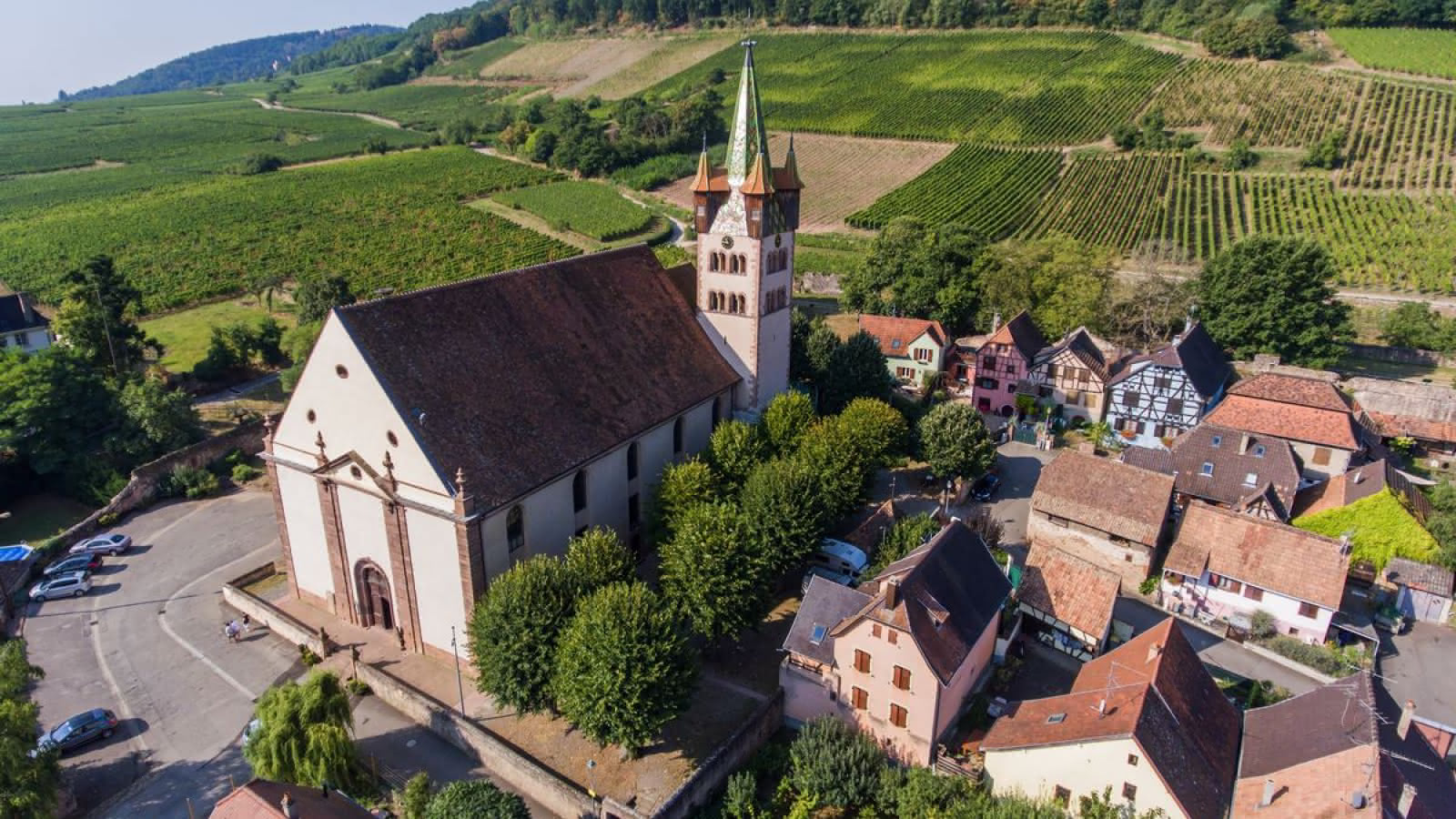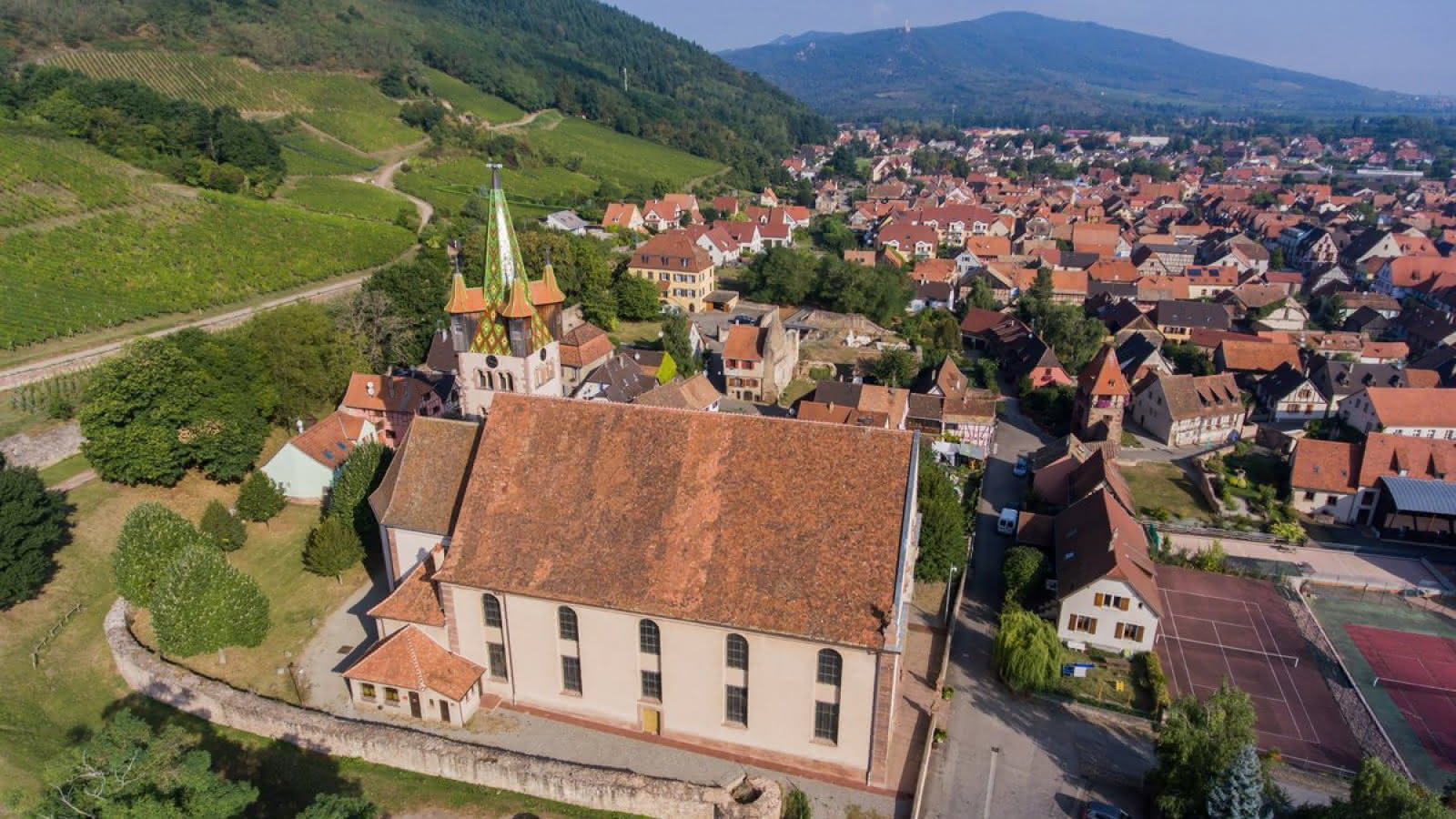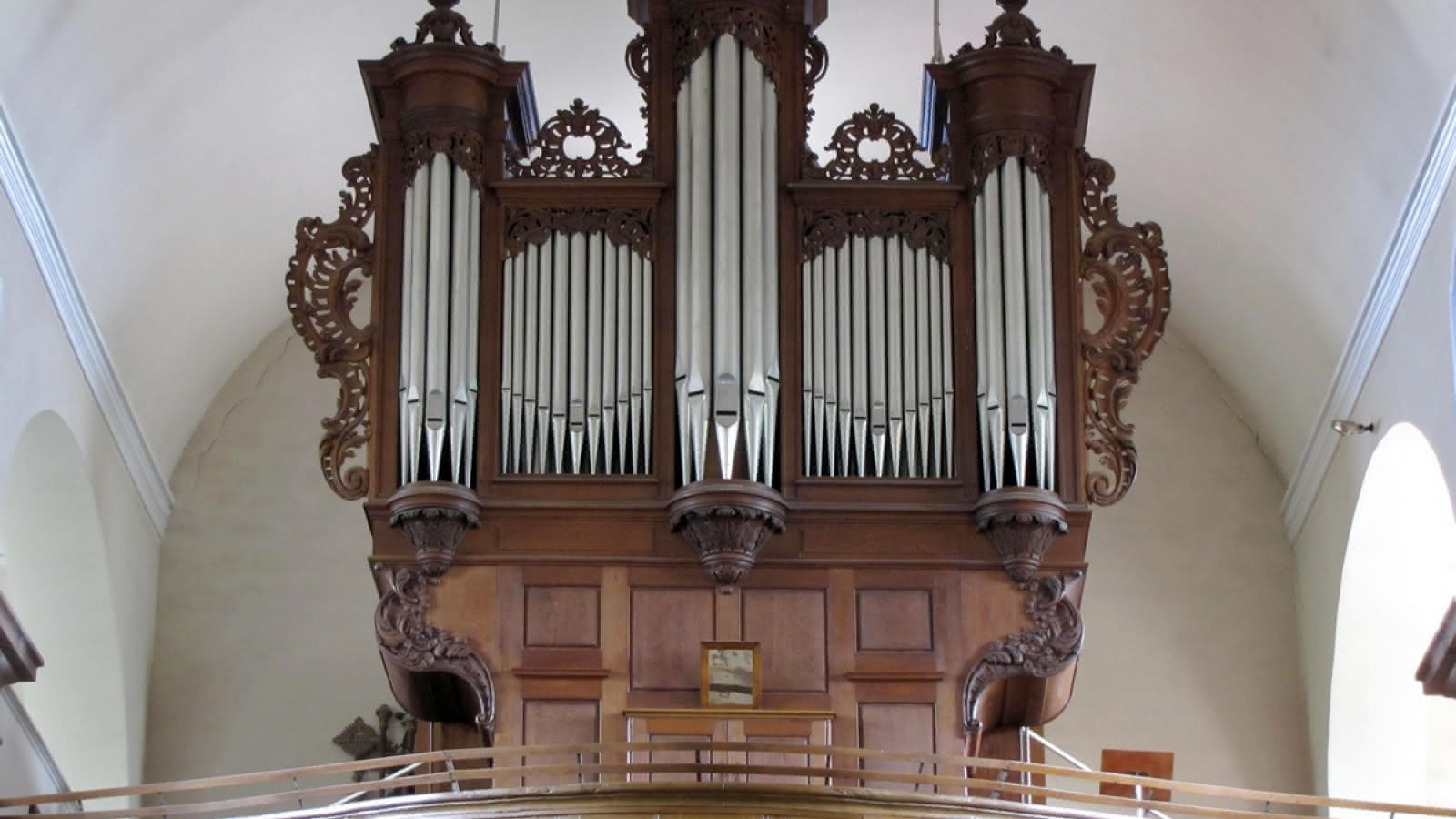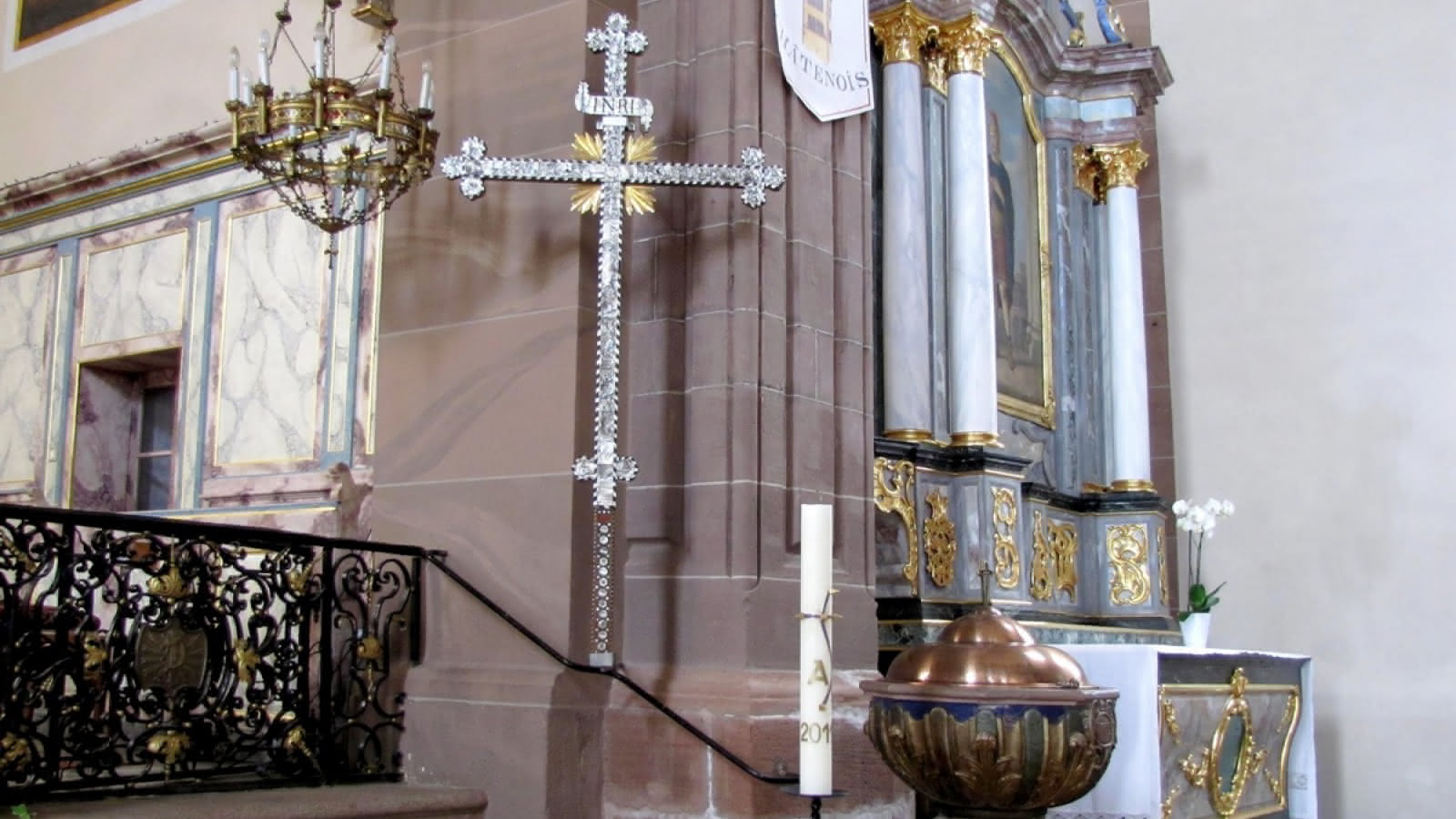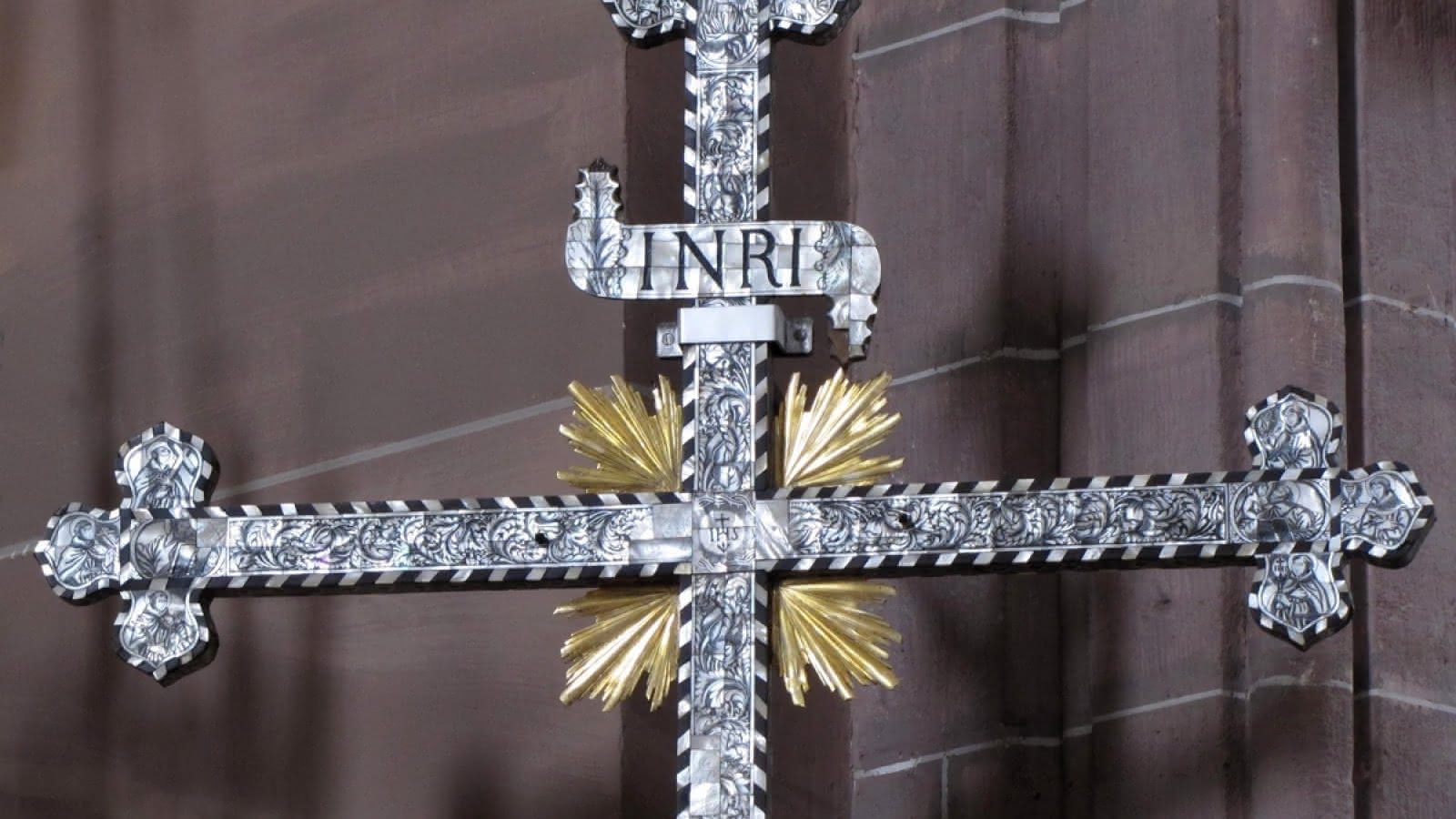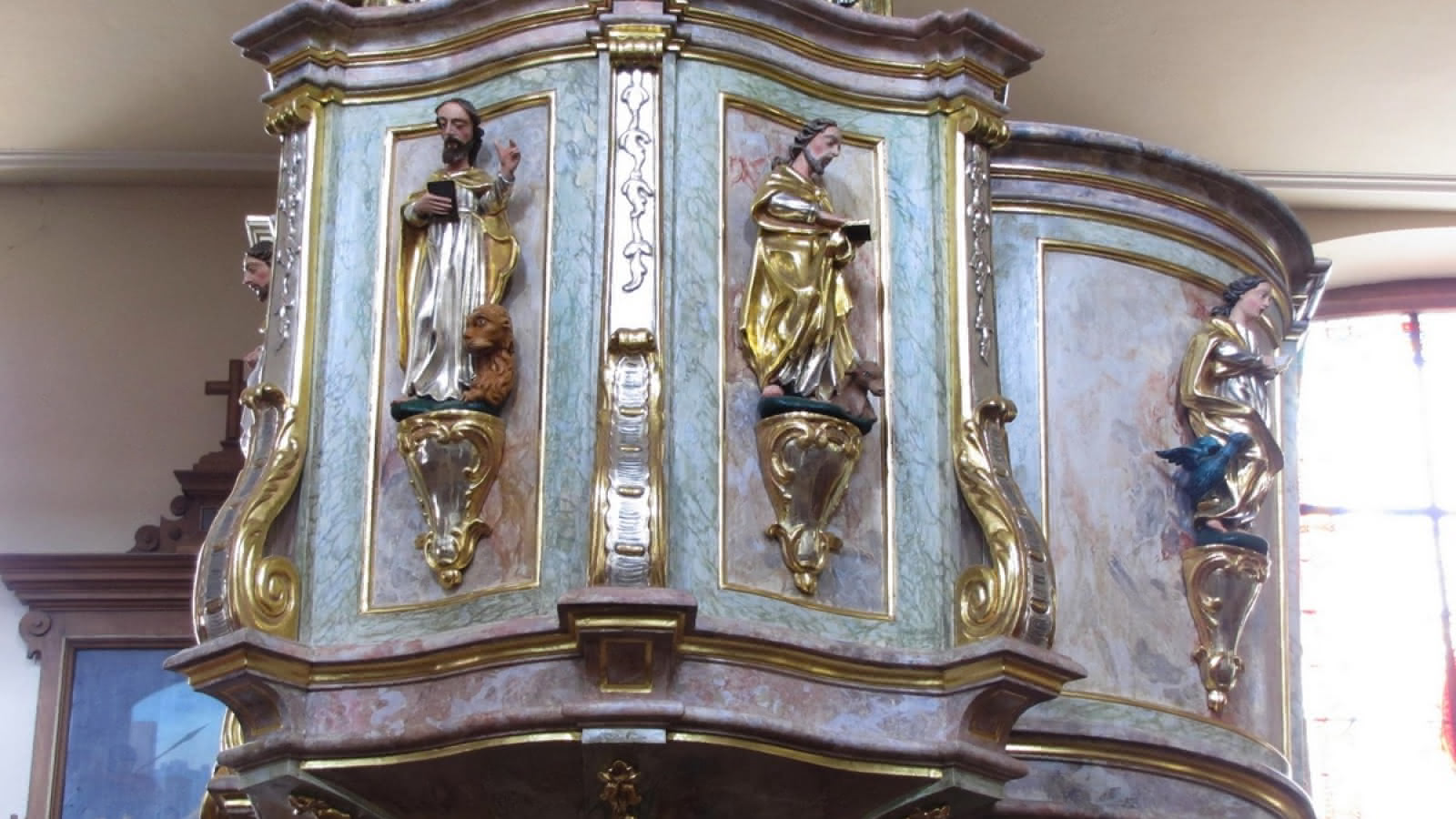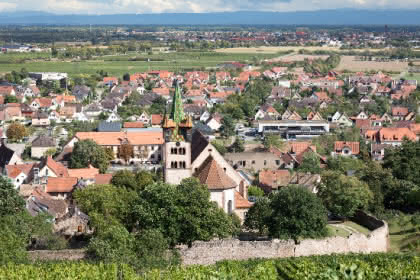St George's Church (Eglise Saint-Georges)
" 
The church of Saint-Georges has preserved its powerful Romanesque bell tower with geminated bays. Its four corner watchtowers date from 1530 and are made entirely of chestnut wood, and were probably used as a lookout. The nave and the choir were built in 1759 and are furnished almost as they were originally.
The interior is particularly worth seeing:
- The Silbermann organ from 1765, which has been classified and restored in 1973,
- The very beautiful processional cross in rosewood veneered and inlaid with mother-of-pearl, dated 1763, from the Franciscan convent in Sélestat,
- An incomplete Holy Sepulchre from the end of the 15th century: the dead Christ is lying on a slab and three holy women are standing behind him in a painful attitude. Two guardians accompany the ensemble,
- Tombstones of the bailiffs of Châtenois (16th to 18th century).
- Four polychrome paintings in relief, strongly inspired by the engravings of Albrecht Dürer. Two of them, made around 1520, are integrated into the altarpieces of the secondary altars of the 18th century: the Assumption and the Coronation of the Virgin, the Birth of the Virgin. The other two, also from the early 16th century, are placed in 18th century frames (second pillar of the nave): the Nativity, the Adoration of the Magi
- Altitude : 190m
- Distance to the nearest station (km) : 3km
- Type of visits proposed : Free visit, Guided tour for groups with reservation
- Practical services : Group reception


